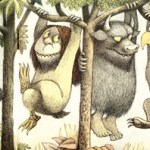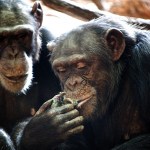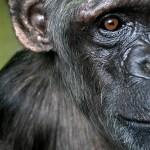Brain & Behavior
The latest issue of the journal Science has an essay by Greg Miller looking at the explosion of research into epigenetics and what this work could suggest about human society.
In 2004, Szyf and Meaney published a paper in Nature Neuroscience that helped launch the behavioral epigenetics revolution. It remains one of the most cited papers that journal has ever published. The paper built on more than a decade of research in Meaney's lab on rodent mothering styles.
Rat moms vary naturally in their nurturing tendencies. Some lick and groom their pups extensively and arch their backs to make it…
Author's Note: The following is an excerpt from my review of Sex At Dawn: The Prehistoric Origins of Modern Sexuality. For additional information see my posts Reexamining Ardipithecus ramidus in Light of Human Origins, Those Cheating Testicles, or Who's Your Baby? as well as Helen's Lament and the Origins of Forbidden Love. Christopher Ryan also blogs at Psychology Today.
When we think of the first swinger parties most of us imagine 1970s counter-culture, we don't picture Top Gun fighter pilots in World War II. Yet, according to researchers Joan and Dwight Dixon, it was on military bases…
New research finds chimpanzees follow prestigious models when learning new tasks. Monika Thorpe / Creative CommonsIf one were to play psychiatrist to the natural world, most human beings would be committed for our certifiable obsession with other peoples' behavior. We compulsively examine, study, appraise, size up, and scope out what those around us are doing and then gossip with others about what we've seen or heard. New ideas or behaviors are especially compelling and will often have cultural critics…
A new study shows that chimps sacrifice their own advantage if they earned it unfairly.Image: Owen Booth / Creative Commons
Fairness is the basis of the social contract. As citizens we expect that when we contribute our fair share we should receive our just reward. When social benefits are handed out unequally or when prior agreements are not honored it represents a breach of trust. Based on this, Americans were justifiably outraged when, not just one, but two administrations bailed out the wealthiest institutions in the country while tens of thousands of homeowners (many of whom were…
(Source)
But which one should be diagnosed?
Diagnostic criteria for 313.81 Oppositional Defiant Disorder
A. A pattern of negativistic, hostile, and defiant behavior lasting at least 6 months, during which four (or more) of the following are present:
(1) often loses temper
(2) often argues with adults
(3) often actively defies or refuses to comply with adults' requests or rules
(4) often deliberately annoys people
(5) often blames others for his or her mistakes or misbehavior
(6) is often touchy or easily annoyed by others
(7) is often angry and resentful
(…
Bonobos retain juvenile traits related to tolerance and cooperation. Image: Vanessa WoodsHow many times as a kid would your parents tell you to grow up and act your age? It turns out that not acting our age may be the very reason why we're so successful as a species.
Brian Hare and colleagues have just released a video (see below) showing a bonobo juvenile voluntarily helping another individual out of their cage to share a few delicious treats. In their study, to be released March 8 in…
In this TED Talk Susan Savage-Rumbaugh discusses bonobos housed in a bispecies environment that have been taught to communicate using pictographs. In the talk she suggests that biology isn't what made humans unique from nonhuman apes, but rather argues that it was cultural developments and social learning. Quite obviously there are some biological differences (around 1% of our genes differ, some of them coding for proteins important for brain formation). However, I challenge you to watch Kanzi build a fire and perform activities that require precise hand-eye coordination (including the…
Dolphins, such as this individual caught and used by the US Navy, could be granted personhood rights that protect them from such abuse. Image: United Press InternationalIn Douglas Adams' series The Hitchhiker's Guide to the Galaxy it turned out that dolphins were super intelligent beings from another world who felt protective of the hairless ape creatures that were dithering about feeling self important:
On…
Researchers from Simon Fraser University, just a stone's throw from where I sit in Vancouver, have determined that the side effects from this endocrine disruptor can alter children's behavior:
Researchers have just linked prenatal exposure to bisphenol-A - a near-ubiquitous industrial chemical - with subtle, gender-specific alterations in behavior among two year olds. Girls whose mothers had encountered the most BPA early in pregnancy tended to become somewhat more aggressive than normal, boys became more anxious and withdrawn.
Another recent study, by Joe Braun of the University of North…
The only known photograph of famed head case Phineas Gage was discovered last month (on Flickr of all places!). Jack and Beverly Wilgus had the above daguerreotype for thirty years before realizing what it was. As they describe the image's history at their website:
We called it "The Whaler" because we thought the pole he held was part of a harpoon. His left eye (we have flipped the picture since the daguerreotype is a laterally-reversed mirror image) is closed so we invented an encounter with an angry whale that left him with one eye stitched shut.
We would still be telling that story if…
The "Revelation" as described by St. John, though likely inspired through the
use of hallucinogens (see The Mystery of Manna).
The title for this post comes from a terrific book by the neuroscientist Antonio Damasio, but I think it's appropriate for a discussion on faith, feeling and reason. Francis Collins' nomination as Director of the National Institutes of Health has effectively gotten people talking about religion, science and what, if anything, each should have to do with the other. I recently brought up Sam Harris' critique of the editor's at Nature for their praise of Collins' book…




